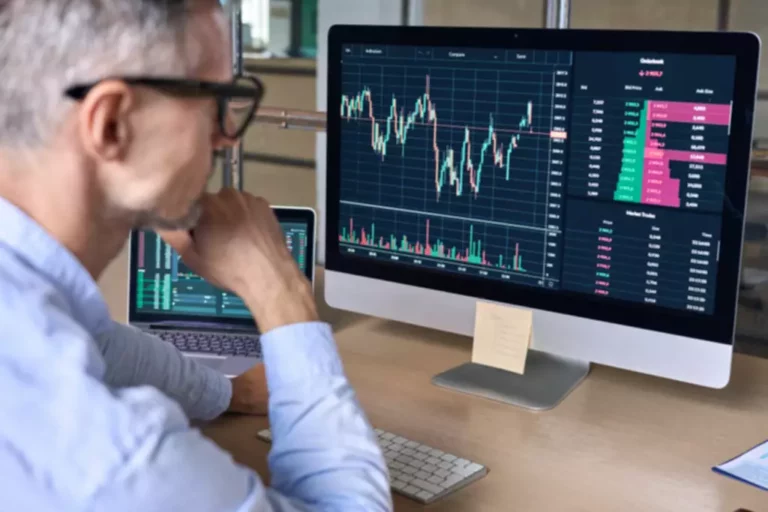For context, market makers are individuals or firms with many assets (e.g., cryptocurrencies) that they are willing to put on a CEX’s order books. As compensation, they receive a slight premium for every order they fill on the CEX’s platform. CEXs also offer market makers special privileges to attract them to their websites. CEXs are public or private companies offering cryptocurrency trading services. These exchanges match crypto buyers and sellers and finalize trades in a convenient trading environment. Each CEX uses a centralized “order book” to record every transaction on its platform.
You would then have to connect your personal wallet to the exchange and submit your order. The DEX would fulfill it by using the funds from the AMM and your trade would be complete. The tokens would go directly into your wallet, with no deposits and withdrawals needed.
Differences between centralised and decentralised exchange
Therefore, users are likely to consider DEXs or decentralized exchanges as an alternative to centralized exchanges. Most important of all, the growth of the DeFi movement serves viable implications for the adoption of decentralized exchanges. The introduction to centralized crypto exchanges provides a clear glimpse of their potential. Most of the discussions around centralised crypto exchanges revolve around the concerns of centralization.

This high risk aspect has been the reason why many stay clear of crypto, but is also one of the reasons why so many investors have entered the space in recent years. Once you set up the wallet on the centralized exchange, you can begin your first transaction. Centralized exchanges are subject to the regulations of the jurisdictions in which they operate, though these can vary considerably. In some countries, a single financial regulator has oversight of cryptocurrency businesses. This means that exchanges must work with a variety of federal and state actors to remain compliant. Learn about the importance of providing liquidity, and start earning rewards while supporting decentralized finance.
Got a trading idea? Try it now.
Traders often face the choice between centralized and decentralized exchanges when they first start investing in crypto. In this article, we will have a closer look at what centralized crypto exchanges are and we will also understand the pros and cons of investing via these exchanges. centralized exchange meaning In addition to offering easy access to the crypto markets, leading CEXs are often regulated and adhere to strict compliant rules, making them safer platforms to trade on. With that said, in order to trade cryptocurrencies, you first need an account on a cryptocurrency exchange.

In doing so, they receive rewards, while the platform builds a liquidity pool that it can use. Exchanges also offer support and protection, which is crucial for less experienced traders. Users are able to trade on exchanges knowing they are safe and protected, which means they are less likely to get scammed. It’s also worth noting that, for the most part, if a security breach happens and funds do get stolen, exchanges will cover your loss.
Suitable for Risk-Averse Investors looking for Legit Intermediaries
On some trading platforms, you can also link your credit card to the exchange to purchase cryptocurrencies. A decentralized exchange is a crypto exchange that is not managed by a single entity. It is an automated platform built using smart contracts and is ran by the community and algorithms. Smart contracts handle the orders, there is no custody and as a result, security is much tighter.
It is owned and operated by a private company and requires users to sign up and open an account in order to participate. The defining feature of a centralized exchange is that it is controlled by a single entity, allowing for faster decision-making and subsequent implementation of strategies. He has worked as a reporter on European oil markets since 2019 at Argus Media and his work has appeared in BreakerMag, MoneyWeek and The Sunday Times. Another crucial element of a successful centralized exchange is security. While no exchange is completely immune to malicious activity like hacks, some are safer than others.
Benefits of Trading on a Centralized Exchange
The introductory overview for centralized crypto exchanges is incomplete without references to their definition. A centralized crypto exchange is a platform which enables users to exchange their crypto assets safely. The centralized exchanges offer a secure environment for buyers and sellers to make transactions. Furthermore, CEXs also serve the role of liquidity providers for supported tokens in their capabilities as market makers. The transactions in centralized exchanges are validated electronically and documented on the related blockchain, which powers the concerned digital assets in crypto transactions. On the other hand, decentralized exchanges have emerged as another choice for crypto users seeking reliable and efficient crypto exchanges.
A Decentralized exchange works similarly to a centralized exchange in many ways. However, there are some crucial differences that also make them different. For example, you don’t have to deposit money into a DEX and they don’t use order books to match orders. Instead, they use an automated market maker and settle orders from the pool of available funds. https://www.xcritical.com/ The speed of execution is also typically higher for CEXs, and liquidity is provided by market makers to make sure that all instruments can be easily exchanged. All of the transactions made within these exchanges are completed electronically and are recorded in the corresponding blockchain that powers the particular digital assets being exchanged.
Higher liquidity when compared to decentralized exchanges (DEX)
In this article, we’ll explain what centralized exchanges are, how they work, and examine their pros and cons. Apart from that, a CEXs simply offers a wide range of products and integrated services, which means everything is in one place, making it easier for users to manage their assets. Some platforms offer staking, NFT marketplaces, seemingly endless liquidity, launchpads, P2P exchanges and more.
- While exchanges have security protocols to ensure user funds’ safety, they hold the private keys to the funds you store with them.
- Centralized exchanges also offer access to different transaction-related data for helping traders and other users in analysis for better investment decisions.
- Here, a user typically deposits funds into an account held by the exchange, which acts as a custodian of those funds.
- Rather than that, the exchange has custody of the funds deposited onto it.
- Any issue on such a platform can have widespread consequences, be it a technical glitch, server outage, or financial difficulty.
Alternatively, they can also convert one type of cryptocurrency into another. These are licensed corporations that have a physical presence i.e., offices, employees, and other such infrastructure. Most entrants to the crypto space look for the best cryptocurrency exchanges when start trading crypto. And the reason they pursue it is because they want to avert some of the risks of crypto trading by holding an exchange accountable to a degree – at least when securing the assets is concerned.
Understanding Centralized Crypto Exchanges
This middleman or third party helps conduct transactions by providing liquidity for supported tokens. Introduction Recently, Uniswap, a leading decentralized cryptocurrency exchange, stirred the waters by introducing Know Your Customer (KYC) hooks in their upcoming V4 update. Centralized exchanges provide an order book to process buy and sell orders traders post. An order is a request to buy or sell a digital asset at a specific price.
Many Exchanges offer Insurance Services
Most of the centralized crypto exchanges list tokens on the basis of their reputation, market capitalization and other utilities. Centralized exchanges also offer access to different transaction-related data for helping traders and other users in analysis for better investment decisions. Centralized exchanges utilize the blockchain to exclude the need to rely on intermediary brokers.
It is run by a central authority who undertake all operations including storage of digital assets and providing other services. Finally, transfer your purchased cryptocurrency into a crypto wallet that you control. While exchanges have security protocols to ensure user funds’ safety, they hold the private keys to the funds you store with them. In most cases, that will mean that in the case of bankruptcy, the exchange can use your crypto to pay creditors, leaving you crypto-less. CEX or Centralized crypto exchanges have been a crucial factor in the development of the global crypto markets.



No comments yet.